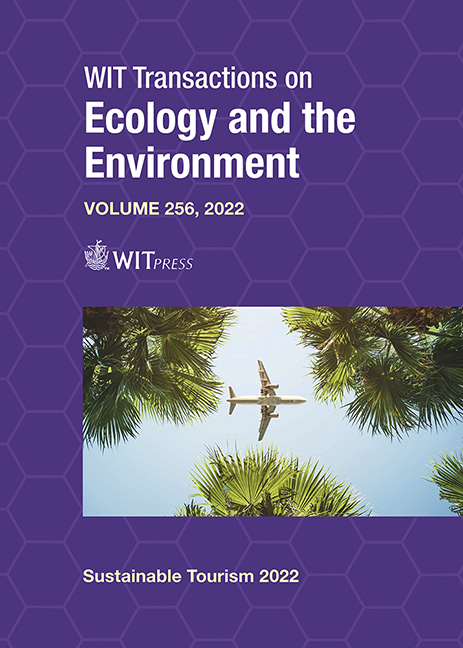SUSTAINABLE PRACTICES IN HOTELS IN SRI LANKA: ANALYSIS OF ENVIRONMENTALLY SUSTAINABLE ASPECTS
Price
Free (open access)
Transaction
Volume
256
Pages
12
Page Range
121 - 132
Published
2022
Paper DOI
10.2495/ST220111
Copyright
Author(s)
N. W. THUSITHA DILSHAN, AYAKO TOKO
Abstract
Sustainable practices are particularly important in the tourism industry, and a substantial number of studies have shown that different environmentally sustainable practices (hereinafter written as ESP) are used by hoteliers who want to be responsible in the industry. On the other hand, hotel practices have been changing according to the guests’ expectations to attract more guests; thus, filling the gap between guests’ expectations and satisfaction of ESP is important. Based on that, this study undertook quantitative research with aiming to identify the gap between guests’ expectations and satisfaction of ESP in Sri Lankan hotels. The study adopted five dimensions related to ESP which were identified through a preliminary study of previous literature. An empirical survey was conducted online with a structured questionnaire to identify the guests’ expectations. Results of factor analysis revealed that environmentally-friendly production, waste management, food and beverage production, and environmentally-friendly hotel construction are the priorities of guests’ expectations. Moreover, waste management, biodiversity conservation and food and beverage production represent a significant gap between the guests’ expectations and satisfaction of ESP. Finally, this study found that guests’ expectations mainly rely on the superficial natural atmosphere; therefore, more appropriate information and interpretation of sustainability would be needed for guests to optimize the usage of natural resources. Moreover, the study recommends that determining the reasons for making guests unsatisfied and find the solutions to minimize the dissatisfaction are important since currently available ESP have not met the satisfaction level of the guests.
Keywords
sustainable tourism, environmentally sustainable practices, hotel industry, guests’ expectations, factor analysis, Sri Lanka





